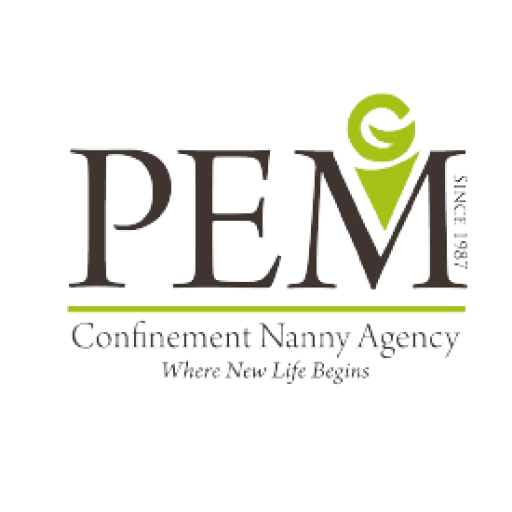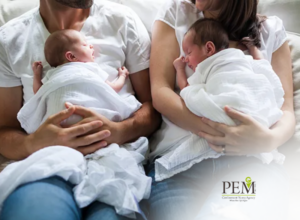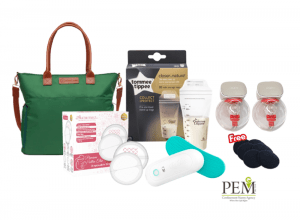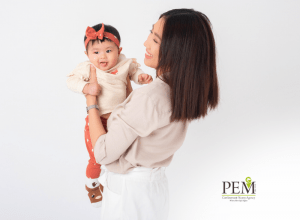[email protected] ♦ (+65) 6293 9249 ♦ Mon - Sun : 10:00AM - 7:00PM
Confinement Nanny vs. Postpartum Doula: Understanding the Differences

When you’re expecting a baby, there’s much to consider. You’ve got the nursery to set up, baby clothes to buy, and prenatal appointments to attend. But one thing that often gets overlooked is the support you’ll need after your little one arrives. That’s where confinement nannies and postpartum doulas come in – two types of professionals who can help make those first few weeks with your newborn a whole lot smoother.
But what exactly are these roles, and how do they differ?
Parents-to-be must understand their options to choose the best fit for their needs. In this article, we’ll break down the differences between confinement nannies and postpartum doulas and highlight some key factors to consider when making your decision.
Roles And Responsibilities Of Confinement Nannies
Did you know that nearly 90% of new mothers in Asian countries like Singapore and China employ a confinement nanny postpartum period? This astonishing number shows the importance placed on cultural traditions around childbirth.
The role of a confinement nanny is deeply rooted in these customs, supporting new moms as they recover from pregnancy and birth and providing critical nanny course in Singapore. For example, PEM Confinement Nanny Agency provides vital nanny courses to all their nannies, and they even have their in-house training centre to facilitate such!
Choosing the right confinement nanny is crucial for a smooth postpartum experience. Nanny selection often involves considering factors such as language barriers, culinary skills, and personal compatibility with the family’s needs.
These nannies are responsible for caring for both mom and baby, allowing the mother time to rest, heal, and bond with her newborn. In addition to cooking nutritious meals, caring for the infant, and offering guidance on breastfeeding techniques or diaper-changing tactics, they also assist with light household chores.
Although there are many benefits to hiring a confinement nanny, it can be daunting for some families who may feel overwhelmed by integrating someone new into their lives during an already stressful time. However, it is essential to remember that these professionals possess valuable knowledge passed down through generations about postnatal care practices based on ancient wisdom – information that can help ease any concerns or uncertainties surrounding this particular bonding period between parent and child.
Services Provided By Postpartum Doulas
Having explored the roles and responsibilities of confinement nannies, let us now delve into the services provided by postpartum doulas. These professionals also focus on assisting new mothers during their recovery period after giving birth. However, they differ from confinement nannies in several ways.
Postpartum doulas are known for their expertise in newborn care. They educate parents on various aspects, such as bathing, swaddling, diapering, and soothing a fussy baby. Additionally, they offer sleep assistance to help parents and infants establish healthy sleep patterns early on. This guidance can be invaluable for first-time parents who may feel overwhelmed with the demands of caring for a newborn.
Breastfeeding guidance is another essential service offered by postpartum doulas. They provide tips and support to ensure successful breastfeeding experiences for both mother and child. Providing emotional encouragement and practical advice tailored to each family’s needs, postpartum doulas create an atmosphere conducive to healing and bonding between parent and infant.
With this comprehensive range of services provided by these skilled professionals, it is clear that postpartum doulas play a vital role in easing new families’ transition into parenthood.
Training And Certification Requirements
As the saying goes, a little knowledge is a dangerous thing.’ When caring for new mothers and their babies, this statement rings particularly true.
Training and certification requirements differ between confinement nannies and postpartum doulas, impacting the quality of care provided and the potential for professional growth in each role.
Certification benefits both practitioners and families seeking support during a critical time. While no formal training or licensing processes are required for confinement nannies, some may choose to attend courses or learn from experienced peers.
In contrast, postpartum doulas often pursue certification through accredited organizations such as DONA International or CAPPA (Childbirth and Postpartum Professional Association). These programs provide comprehensive training resources that cover topics like breastfeeding support, newborn care techniques, understanding postpartum mood disorders, and more.
Pursuing continuous learning sets professionals apart in any field; however, it takes on increased significance when navigating the complex world of infant care and maternal health.
For those interested in pursuing work as a confinement nanny or postpartum doula, investing time and effort into obtaining certifications can open doors to more significant opportunities while providing invaluable skills needed to best serve clients during one of life’s most transformative periods.
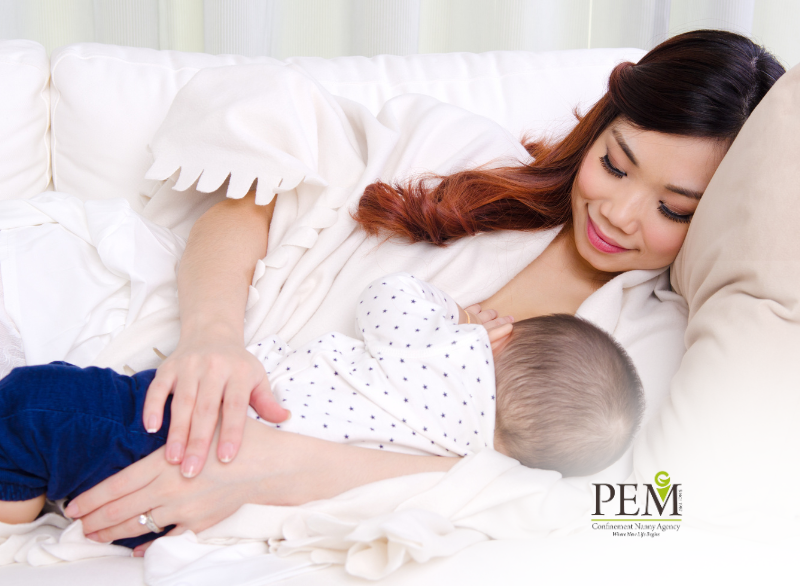
Support For Physical And Emotional Well-Being
Postpartum nutrition is vital for new mothers. A confinement nanny focuses on preparing meals based on cultural practices. These traditional dishes aim to replenish the mother’s energy and support recovery.
The postpartum doula also considers nutrition necessary, yet with a more flexible approach. They provide guidance tailored to individual dietary needs and preferences.
Cultural practices play an essential role in both services. Confinement nannies strictly adhere to customs from their specific culture or background. For example, Chinese confinement nannies may prepare herbal soups and warm foods according to traditional beliefs.
Postpartum doulas adapt to different traditions but focus primarily on the mother’s comfort and well-being. Supporting mental health is crucial during the postpartum period. While confinement nannies focus on household tasks and baby care, they might need more expertise in emotional support.
On the other hand, postpartum doulas are trained professionals who address both the physical and emotional aspects of recovery. They offer empathy, encouragement, and practical advice as new mothers navigate parenthood challenges without being overwhelmed by strict cultural expectations or routines.
Choosing The Right Option For Your Family
Choosing between a confinement nanny and a postpartum doula depends on your family’s needs. Consider cost comparison, cultural preferences, and professional advice when deciding. Reflect on your budget, values, and support network to determine which option suits you best.
Cost is an essential factor for many families. Confinement nannies may be more affordable but often need formal training or certification. Postpartum doulas usually charge higher fees but come with specialized education and experience in newborn care. Weigh the financial implications of each choice carefully before deciding.
Cultural preferences play a significant role as well. A confinement nanny might suit families who adhere to traditional practices and beliefs from Asian cultures, such as Chinese, Indian, or Malay customs. On the other hand, postpartum doulas are suitable for those seeking modern approaches rooted in evidence-based techniques and emotional support during the transition into parenthood.
It helps to seek professional advice from healthcare providers like paediatricians or obstetricians about what kind of caregiver will best match your family’s specific requirements. Remember these factors while making this crucial decision for a smooth post-birth recovery period filled with love, care, and bonding moments with your little one.
If you are going for agencies, take a look at their confinement nanny Singapore review to ensure that you know what you are getting into.
Conclusion
In conclusion, choosing between a confinement nanny in Singapore and a postpartum doula can feel like navigating uncharted territory. It’s essential to weigh the unique roles and the services they provide while considering your family’s needs.
Remember, the world of parenting is vast and full of choices; there isn’t a one-size-fits-all solution. Trust your instincts as you make this decision – nobody knows better than you what will work best for your growing family.
Need a helping hand? Get in touch with PEM Confinement today to learn more about our nanny services!
